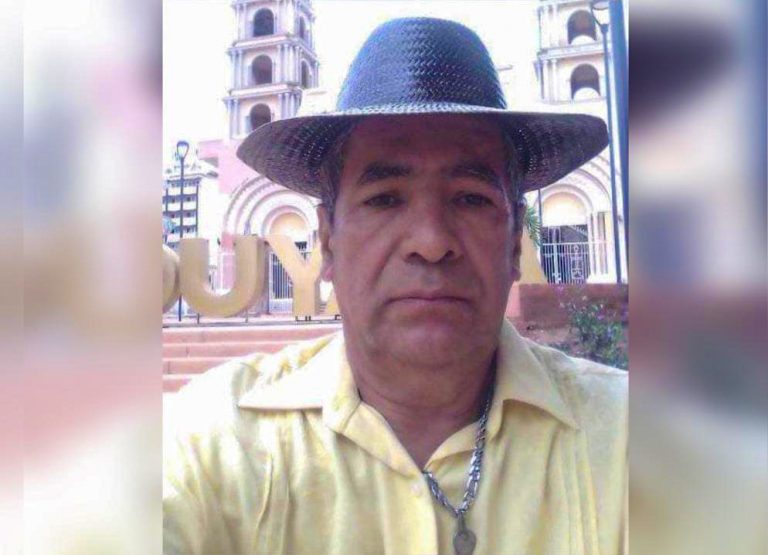6 de agosto 2023

Children of Exile: The Births “Sowing Hope” in the Camp of Nicaraguan Farmers

PUBLICIDAD 1M
PUBLICIDAD 4D
PUBLICIDAD 5D
According to relatives, Juan Carlos Baquedano was arrested in Jinotega on August 2nd and later transferred to Managua

Former political prisoner Juan Carlos Baquedano, a native of Jinotega, was released under the government Amnesty Law in 2019, but detained anew by the police two days after he returned from Mexico. Courtesy photo
On August 2, the Ortega regime detained and abducted 65-year-old released political prisoner Juan Carlos Baquedano. He had left the country for Mexico, but returned to Nicaragua on July 31 to organize his personal documentation and that of his property, confirmed opposition activist Ivania Alvarez.
On Tuesday, August 1, Baquedano was able to conduct his administrative transactions normally, but around 1 pm the following day, the police appeared at his Jinotega home. Without a warrant, they ordered him to accompany them.
After several hours passed with no word, the family went to the departmental police station to obtain more information about his situation and to bring him food. However, they were informed that Baquedano had been transferred to Managua.
The family doesn’t know if Baquedano is being held in Managua’s District III Police Station, where the regime has lately been taking dissenting citizens they pick up in large-scale raids.
In July 2018, amid the protests against the regime of Daniel Ortega in Nicaragua, the Attorney General’s office accused Juan Carlos Baquedano of “murder, illegal firearms possession and carrying, terrorism, obstructing public services, and kidnapping.” Such sweeping accusations, presented without evidence in express trials, characterized the regime’s efforts to squelch the protests and punish those who participated.
Judge Adela Cardoza, who presided over Managua’s Second District Criminal Court sentenced Baquedano to a total of 47 years in prison: 25 years for the alleged killing of Pedro Israel Ramos Chavarria on June 16, 2018; and to 22 additional years for terrorism.
In addition, the authorities accused him of being the “head” of the groups that blocked the roads in Jinotega, as part of the protests against the Ortega government.
After eleven months in prison, Baquedano was released through the government’s unilateral 2019 Amnesty Law.
Baquedano is a veteran of the Sandinista revolution. During the eighties, a team of doctors from Cuba, Mongolia and the Soviet Union succeeded in removing a bullet lodged in his head, while preserving his mental functions, recalls a 2019 report entitled, “The revolt against Ortega goes into exile.” In 2018, when the Civic Rebellion exploded, he joined hundreds of thousands of Nicaraguans in the civic protests. He participated in the roadblocks that the population erected along the country’s chief thoroughfares, as a way of pressuring the regime to negotiate a peaceful solution to the sociopolitical crisis.
After the government passed a unilateral Amnesty Law in 2019, with the aim of absolving any of their own agents who had engaged in criminal acts, dozens of political prisoners were released. Nevertheless, the police continued to restrict their movements, keep them under constant surveillance and subject them to arbitrary detentions. That led a large part of the former prisoners to go into exile. However, many have had to return for different motives, although they risk a new arbitrary detention that deprives them once more of their freedom.
This article was originally published in Spanish in Confidencial and translated by Havana Times.
PUBLICIDAD 3M
Confidencial es un diario digital nicaragüense, de formato multimedia, fundado por Carlos F. Chamorro en junio de 1996. Inició como un semanario impreso y hoy es un medio de referencia regional con información, análisis, entrevistas, perfiles, reportajes e investigaciones sobre Nicaragua, informando desde el exilio por la persecución política de la dictadura de Daniel Ortega y Rosario Murillo.
PUBLICIDAD 3D